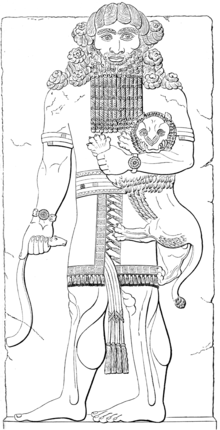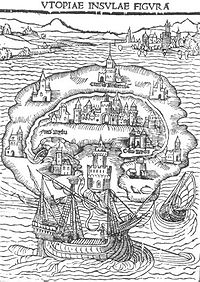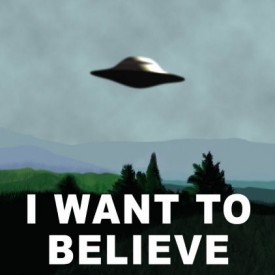Lists.
A recent NPR article reminded me that they are an effective way to get information across. Everyone seems to love them, if only to take advantage of the opportunity to expose their flaws (as in this recent Buzzfeed fail of 9 Women Who Shaped Science Fiction: I don’t necessarily disagree with the idea that the listed authors helped shape SF – I just believe as a lot of the comments state that there are other, more influential choices. The first three authors belong there, as does the last. It’s the middle thing I take issue with.)
I also believe that a good list opens up discussion and illuminates a subject, or at least ought to try to accomplish those goals. Such is the case with the series of lists I am embarking upon today. But before we get to the contentious part, allow me a brief explanation of my purpose here:
I firmly believe that SF is an important part of our literary landscape (perhaps THE most important literature, but that’s for another discussion). I also believe that if you are really going to engage with the literature, a knowledge of and an appreciation for the canon is mandatory. If I were to take an elitist position here, I’d say something like “if you can’t speak knowledgeably about certain seminal texts, you’re not really a reader or a fan of the genre and I heap scorn upon your ignorance in as dismissive a manner as possible”. That is of course a bit harsh, but it bears a kernel of truth – especially when one considers that access to older works is easier than it has ever been before (and most of them are pretty short by today’s door-stop standards). You can play catch-up pretty cheaply and effectively in hardly any time at all. Which is another way of saying that there really is no good reason not to be familiar with these works.
When I say essential, I don’t necessarily mean “best” and I certainly don’t mean “only”. This is not a list of so-called classic works that I’ve read and enjoyed and are now demanding that you read (and enjoy). What I do mean is that if you really want to have a discussion of the genre, understand its roots, its developmental process AND do so from a position of strength and conviction that you really do know what you are talking about, you’ll want to have these works in your “Read” pile.
Don’t worry: even if you haven’t read any of these, you are still welcome to visit Amazing and talk about your favorite subjects. We’ll try not to snicker too loudly. 🙂
Before Shelley
I’m beginning this series of lists with the pre-science era for two very good reasons: first, SF is literature and all literature has its roots in this era. Second, because many SF scholars, far more steeped in the history of literature, and with more degrees in English than I have, have made a convincing case for their inclusion. I’m limiting the number to ten because – lists.
 1. The Epic of Gilgamesh (2500 BCE approximate) The oldest surviving literary work we are familiar with and one that contains the seeds of form and tropes we are familiar with today. Gilgamesh is the original super hero; his journey and feats largely conform to the “Hero’s Journey” and one can find echoes of this work in virtually every piece of fiction that has been written since.
1. The Epic of Gilgamesh (2500 BCE approximate) The oldest surviving literary work we are familiar with and one that contains the seeds of form and tropes we are familiar with today. Gilgamesh is the original super hero; his journey and feats largely conform to the “Hero’s Journey” and one can find echoes of this work in virtually every piece of fiction that has been written since.
2. Religious Texts (Bible, Koran,Mahabharata, Ramayan, etc) (Written from approximately 1400 BCE on). Whether you accept one or more of these works as Holy writ or not, the fact is that they are great examples of story telling. Many of the parables contained therein illustrate common themes; many of the characters found within are stereotypical of their type. And it goes almost without saying that their teachings offer a lot to think about.
3. The Iliad and the Odyssey. (700 – 300 BCE Approximately) Epic Poetry. Homer. Hero’s Journey. Ancient Greece & Troy. Why? Because modern story telling traces its roots right back to these tales. And because their adventure can be re-written to incorporate metaphor for just about anything you’d care to metaphor about.
4. Aristophanes. (400 BCE) Several works. Additional examples of authors engaging with fantastical elements in a pre-scientific era. (The Clouds)
5. Lucian A True History. (200 AD) The first known example of a future history and nascent world-building
 6. One Thousand and One Nights. (800 AD) Contains story-telling forms and many fantastical elements. (ancient cities, ethereal creatures, mummies, robots, flying craft…)
6. One Thousand and One Nights. (800 AD) Contains story-telling forms and many fantastical elements. (ancient cities, ethereal creatures, mummies, robots, flying craft…)
7. Beowulf (1000 AD). Because it is considered to be the first example of English literature and because it has monsters. And monster’s mothers!
8. Dante’s The Divine Comedy. (1300 AD) Because it takes us to a fully-realized alien world (albeit through a form of divine intervention). And because at least one classic SF novel used it as source material. (Inferno, Niven & Pournelle). And because, in Dante’s era, it took major chutzpah to use the word comedy in a story about hell.
9. Thomas More’s Utopia. (1500s) Introduces the idea of incorporating human society as an object that can be manipulated.
 10. Johanne’s Kepler’s Somnium (1600s). A trip to the Moon, written by a scientist.
10. Johanne’s Kepler’s Somnium (1600s). A trip to the Moon, written by a scientist.
Next: 10 Essential SF Tales From the Age of Reason
Have you read them? Will you now? Do you think they led to SF, or are we just trying to tack a scholarly origin onto bastardized adventure tales?











In Mexico a Franciscan Friar wrote: “Syzygies and Lunar Quadratures Aligned to the Meridian of Mérida of the Yucatán by an Anctitone or Inhabitant of the Moon, and Addressed to the Scholar Don Ambrosio de Echevarria, Reciter of Funeral Kyries in the Parish of Jesus of Said City, and Presently Teacher of Logarithm in the Town of Mama of the Yucatán Peninsula, in the Year of the Lord 1775” (Yes, all that. This is a good translation of the name)
Sorry, forgot the name: Manuel Antonio de Rivas, and another detail: because of this booklet he was accused of heresy.
Cyrano de Bergerac A Voyage to the Moon and A Voyage to the Sun
https://www.amazon.com/Voyages-The-Moon-And-ebook/dp/B003XT5EHY
One of his ships flew by being attracted to a magnet that was thrown repeatedly in the air.